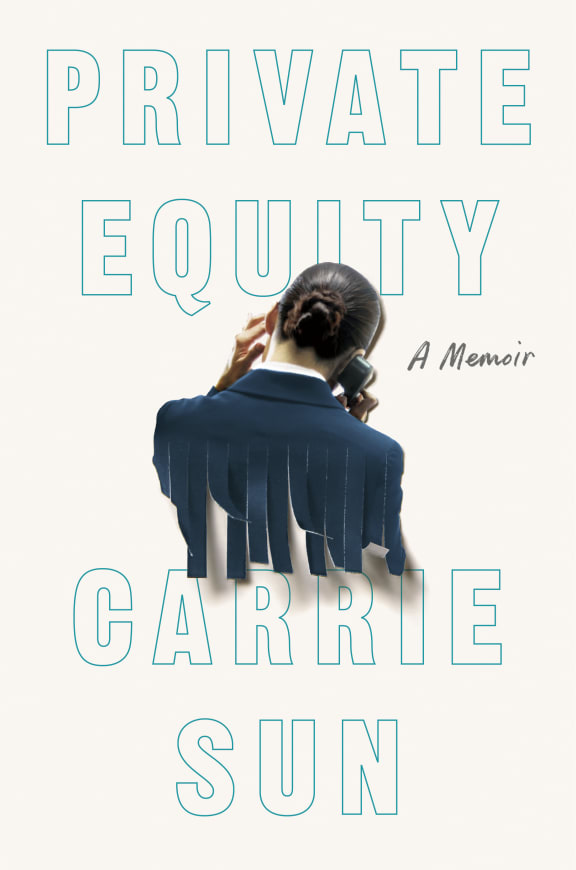At the age of 29, New Yorker Carrie Sun bagged a top job at a top Wall Street hedge fund.
As private assistant to the firm's billionaire founder, Sun entered a world of power, privilege and extreme wealth.
But as the demands of the job took a toll on her physical and mental health, Sun began to question everything she had worked for.
Her new memoir, Private Equity, exposes the brutal reality of high finance.

The writer Carrie Sun (China/USA), New York, New York, July 27, 2023. Photograph © Beowulf Sheehan beowulf@beowulfsheehan.com Photo: Beowulf Sheehan
Even before she landed the job, the interview process was a test of endurance, she says.
“Fourteen interviews; just speaking to the recruiter, I had a resume screen, a phone call, an in-person interview with him before he even told me about the job.
“Then, after he told me about the job, and he pitched me to that company, the person on that company side handling the recruiting asked me to come in, in-person, in two hours.
“That just speaks to kind of the pace at which things happen in that world, and there is just not a second to be wasted at all.”
When Sun landed the job, she was initially dazzled by the perks on offer.
“We had a stipend for lunch every day, including catered lunch from the very best restaurants in New York.
“The kitchen was stocked like Whole Foods. Every single flavour of kombucha and all these health foods.
“The gym overlooked Central Park, there was also a yoga and bar room for exercise. There was a peloton overlooking Central Park again where you can watch sunrises and sunsets.
The gym was also stocked with comp Lululemon and Nike workout gear, she says.
“When you're done, you throw them in a hamper work will launder them for you.”
Boone Prescott is the pseudonym in the book for her boss at the hedge fund.
“I had just so much respect for him when I started the job because he was someone who really cared about morality and ethics, he expressed as much on the firm level, on the personal level, and on the philanthropic level, he tried hard to really be as generous and as fair as possible.
“I was burnt out within the first three months, but I still kept on going, because I really believed in what he was saying, that he really cared for my career and wanted to help me succeed.”
Her workload, she says, was off the scale.
“On my very first day of work, I received my written job description, and it was in nearly 100 bullet points of responsibilities.”
Some seemed reasonable but were incredibly hard to achieve, she says.
“No unanswered phone at the office, that meant no incoming calls go to voicemail. That was really stressful, because at certain times, I was talking to three people on the phone at the same time, different people on hold for different reasons.”
Many of the responsibilities on her job description included the term ‘as needed, as necessary.’
“Another version of this is just being on call, you don't know the time required and then you also don't know the expectations.
“So, the workload was extreme, pretty unrelenting and also unpredictable.”
Emails, she quickly realised, must be answered immediately.
“After my very first day of work my boss had emailed me a photo of his kids, I didn't respond because the email was something at like 8pm or 9pm, and to me, it was on a personal topic.”
The next day at the office he tells her he expects her to respond to his emails as soon as she saw them.
“That's code for immediately. And he wanted me to respond to all emails with just a ‘got it’, because he wants to know that I saw his email.”

Photo: Penguin
Six months later she was on the treadmill and her phone pinged. It was the boss, but the matter wasn’t urgent. She hesitated, but given the previous conversation, decided to answer.
“So, I answered the email while running and I pick up my phone, I start typing a reply, and I immediately fall off the treadmill - it was a big fall.”
She ended up with extreme treadmill burns.
“Quilts of skin were missing from my knees, and it took the skin on my knees many, many, many months to heal. I still have scars from that today.”
She didn’t go to hospital straightaway, she says.
“The first thing I said after I fell off the treadmill was, ‘I'm fine.’ And then the second thought I had, which I didn't say aloud, was 'I need to get back to work'.
“All I could think about was how my treadmill fall would be affecting my ability to do my work.”
This kind of extreme pressure is typical of high finance, she says, and while she doesn’t believe her boss exploited her, she does think it was an “exploitative relationship.”
“I think this just gets back into actually, capitalism. Capitalism is all about unequal social relations and the capitalist logic of that unequal social relation and how, also with hindsight, now, I just can't believe how low my bar was for what nice means.
“My boss never yelled at me. He did critique and criticise me a lot and give me instant feedback all the time, including feedback on things that were not directly related to work.
“But I just thought he was really nice, because he just never raised his voice. That’s a definition of nice that I no longer have.”
Quitting high finance and writing her first book proved to be a considerable challenge, she says.
“Coming to terms with the person I was in the book, which is, very different from who I am now.
“When I started writing the book, I really had a very difficult time I was just embarrassed, ashamed, at how naive I was. But I think I had to get over that, because that is the story.”

